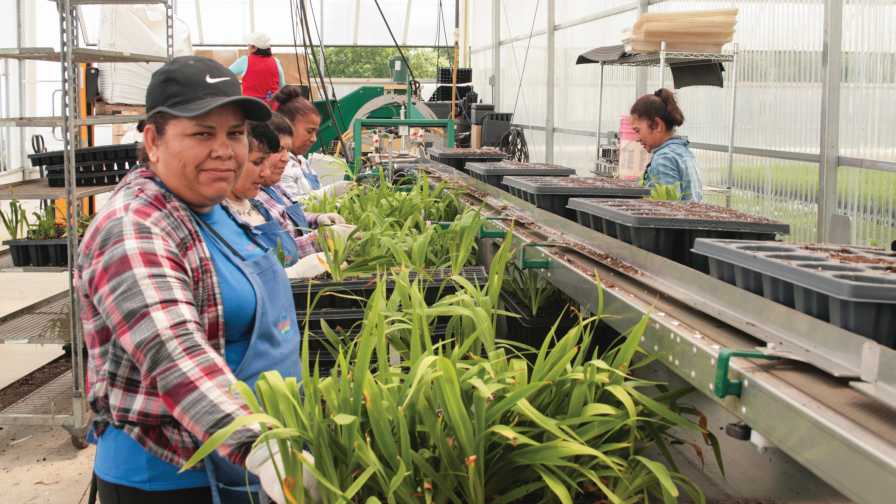Are You Leading Your Agribusiness in the Right Direction?
If you are the owner or manager for one of our great farms or businesses in northern Michigan, you serve as a leader for your business, your employees, your family, and even yourself. Of course, leading people means that people are typically following you to achieve results. In the short term you may be able to demand some level of following but achieving long term productive leadership demands more of you.
Long term, employees will follow you because they see your values, your dedication to the success of the business, and your commitment to helping them succeed. If you’re having a difficult time getting employees to follow your lead in a consistent manner, you should consider dedicating time to working on your relationship with your employees and encouraging better communication and teamwork between employees.
While leadership is definitely the softer side of business management skills, it has a profound application to employee satisfaction, retention, and their willingness to recommend your business to other potential employees. Ultimately, spending time on this area of your management will greatly impact productivity on your farm or business.
Phil Durst, dairy educator for MSU Extension, and I researched dairy farm employees from 12 farms in five states which revealed how important the relationships between managers/owners and their employees are. We believe that the things revealed are applicable to any business including family businesses or farms. Here are just a few of our findings from. Effects of employer management on employee recruitment, satisfaction, engagement, and retention on large U.S. dairy farms – ScienceDirect.
First, employee satisfaction was highly correlated with:
- How employees viewed their relationship with their supervisor (positive and respectful, or negative and no respect)
- How open and honest communication was between them and their supervisor
- Whether employees felt that they could talk with their supervisor about problems, and
- Whether they felt their employer is working toward improving the operation (how progressive is the employer). In fact, employees who reported a higher rating on these relationship-based questions were 2.2 times more likely to be satisfied in their job.
Employees’ interest in continuing to work on their current farm was also highly correlated to how they rated their employers on these relationship-based questions. Employees who reported a higher rating were 1.7 times more likely to intend to stay with their employer. Conversely, employees who reported low independence to do their jobs were almost three times less likely to intend to stay with their employer. The numbers are clear – positive relationships retain workers and perceived lack of independence pushes them away.
If you want to improve employee retention on your farm, work to improve how your employees would respond to these relationship-based questions and develop your employees into experts who do not require constant supervision. We all want to feel competent in our jobs; through your leadership you can help build your employees skills, understanding and knowledge in their jobs and then give them the independence to do the job.
Finally, our research showed that current employees were more willing to recommend their current employer to other potential employees when they rated their employers higher on these relationship-based questions. In fact, those who rated these as above average were over two times as likely to recommend the farm to other workers. In the tough labor market that we find ourselves in, you can’t afford to hamstring your success in recruitment by performing poorly in this area of leadership.
So how do you start making progress?
Find out and continue reading at Canr.msu.edu.








